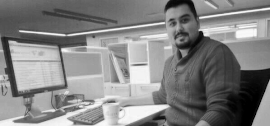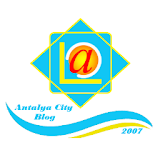The recent massive leak of government documents to the whistleblower website Wikileaks is not just an example of the game-changing potential of the Internet – it’s a clear warning shot to political and social elites who equate secrecy with public service.
Until recently Wikileaks was an insider’s website with a mission to publish secret government documents. But now it’s a social phenomenon; applauded on one hand as an active promoter of democratic principles, and attacked on the other for endangering lives.
The sudden focus on Wikileaks is based on the release of thousands of pages of U.S. military documents, produced between 2004 and 2010, about the Afghanistan war effort. The documents were not intended for public release, but someone with access forwarded them to Wikileaks, which published them online, creating a tornado-like media and political storm.
Canadian officials say U.S. report inaccurate
In Canada the furor was focused on one report that suggested four Canadian soldiers had been killed by ‘friendly fire’ in a 2006 incident, and not by the enemy as the military reported at the time. Canadian officials maintain the U.S. report is wrong and that they did not provide false information to the public. Some Canadian news outlets have criticized the decision to publish the papers, in part because some of the documents could be inaccurate, while also suggesting that military secrecy is expected and required during a war. In the U.S., the reporting is more focused on the bulk of the leaked documents, which cover specific events like the deaths of civilians and involvement of Afghanis in support of Western forces, and include details on strategic initiatives.
U.S. Officials, led by Defense Secretary Robert Gates, are angry over what they suggest is an irresponsible action that could endanger the lives of soldiers, though he hasn’t suggested how their safety has been compromised. Wikileaks founder Julian Assange counters by asserting the documents were vetted prior to release. The names of Afghanis who might have been subject to reprisals have been redacted and much of the tactical information is dated. Assange maintains that it was important to publish because of the public policy importance of the material, and more discussion on the war is needed.
The real issues
Anti-war activists, war-weary folks and the media sites they go to for information will line up on the side of disclosure. Military people and most politicians will argue the need for some secrecy and control of information during wars. Debate in the media has swirled around the ethics of publishing the documents, but the bigger communications issue might be whether the limitless publishing potential of the Internet, combined with an expanding social expectation of information disclosure, will rewrite the rules around what is secret and what is not.
Wikileaks’ social activism
Wikileaks says its mandate is based in social activism and it invites whistleblowers to seize the chance to toot away and send private documents in posting. The editors also explain how they authenticate the documents posted on the site. Having no publishing guidelines would be indefensible, and no one has suggested that Wikileaks’ editors are not living up to their own rules. But if a publisher’s goal is to effect social change, that presupposes he has a good handle on what needs to change, and in a pluralistic society there is hardly ever a consensus on that. If Wikileaks acts according to reasonable in-house policies on handling the documents people submit, the issue boils down to the specific choice made in this case. In a democratic society, where press freedom is assumed and necessary, the benefit of the doubt must go to the editors.
But what about the role of journalists during a war? Do they have a responsibility to withhold information that might damage the war effort? Should they accept restrictions on their reporting? There is no easy answer. Media outlets that are ideologically antiwar would be inclined to publish war documents, while other more conservative outlets might not. In a democratic society, the tension over an appropriate course of action is arguable. The discussion can be hugely emotional for the public, which has watched its soldiers’ bodies being repatriated, and there is no doubt that mainstream media is sensitive to this dynamic.
The Wikileaks case is another indication of the power of the Internet. The web provides a platform for self-promotion and general discovery that is unprecedented. Video and file sharing, viral media, social media, downloading, commercial applications, and publishing applications provide a gigantic range of access points to breaking news and ongoing stories, and it provides unlimited forums for alternate or unofficial voices. The interval between an event and reaction to it has been reduced to hours – even minutes — and anyone with a computer can help shape that reaction.
Whistleblowing is not a new phenomenon, but the ease by which Wikileaks can post thousands of pages of material is new.
You don’t have to be too old to recall a time when political elites had free reign on public messaging around policy decisions, particularly during wartime. Assuming that the access the Internet allows is rapidly meeting up with social expectations for disclosure, the Wikileaks event could be a signal to all that the Internet is leveling the playing field between powerful elites and the rest of us.
Terry Field is an associate professor and journalism program chair in the Bachelor of Communication program at Mount Royal University, Calgary, Alberta, Canada.
Channels: The Calgary Beacon, Aug. 7, 2010




















